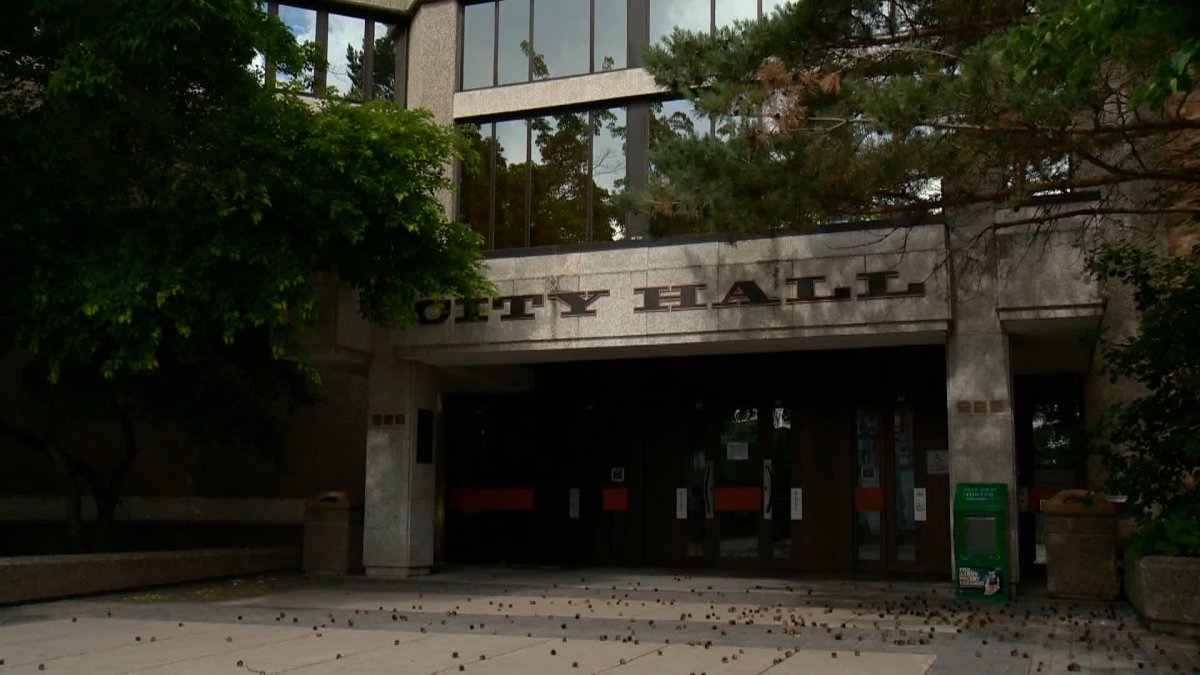Saskatoon is facing a $52.4-million funding shortfall next year and a $23.2-million shortfall the year, with budget deliberations underway.

Budget talks came to a standstill Thursday with no real decisions being made, despite funding cuts and fee increases sitting on the table.
Jason Childs, associate professor of economics at University of Regina said the budget shortfall will be a tough bridge to gap.

“Municipalities are getting squeezed from two different directions,” Childs said.
There are calls for more spending to address programming needs and salaries, but a reduced revenue, he said, pointing to vacant commercial spaces. Childs also said Saskatoon isn’t unique in this challenge.
Municipalities have two main sources of income, property taxes and provincial grants, Childs noted, adding that user fees like water and sewage are becoming more important.
Childs said property values aren’t rising like they have in the past, so municipalities will either need to increase mill rates or reduce spending.
“If you’re struggling to do the basic things that you think are absolutely essential just to keep the lights on, then some of these vanity projects or some of these really nice-to-have but not essential projects have to fall to the wayside.”
He said hard decisions are needed.

Childs said if Saskatoon raises property taxes too high, the city will face competition from surrounding communities and eventually end up hollowing out the city. He cited Detroit as an example of how that dynamic can play out.
“(The city needs) to have a really hard look at the spending side of the equation, particularly programming, and I hope they do it in a open, transparent manner and involve as much of the citizenry as possible.”
Childs warned about the deferrals and future phase-ins that the city administration has put on the table, saying that such strategies can work as temporary stopgaps, but he doesn’t see the budget issues as a short-term problem.
“I don’t see an easy solution here.”
Ken Coates, professor of public policy with the University of Saskatchewan, said Saskatoon needs to get comfortable with the fact that it’s a much bigger city.
Coates said cutting makes everyone nervous.
“I look at a deficit like that and think, ‘oh my heavens that is a big tax increase coming and I’ve got no more space for that right now.'”
“Residents are very reluctant to tolerate any substantial reduction in service,” Coates added.
He said the city is tasked with convincing the public that a higher budget is absolutely essential and taxes need to go up accordingly.
Coates said growth has been rapid in Saskatoon, noting that when cities hit a certain take-off point they tend to grow very fast.

“We need a real common-sense, high-profile vision of where the city is going to go. We need people to sort of buy into it and realize their taxes will go up in the short term.”
He said if that happens services will go up, facilities will improve, and Saskatoon could emerge as one of the most important communities in Western Canada.
Coates said Saskatoon is going to grow one way or another, and it can either grow poorly, or it can grow well.
“What people do not like is seeing taxes growing dramatically and systematically without them seeing a material improvement in their city.”
Coates suggested that the city build a vision of what Saskatoon could look like in 2050, and try to appeal to the public with that vision.
He said the city should also look at finding a way to involve residents in Saskatoon’s budget deliberations and show them the options available.
“I don’t know how you can plan your budgeting processes if you don’t have a target. In this instance, it seems to be rather problematic where you say ‘well, we’re going to keep cutting until we’re happy.’ Well, when are you happy?”
Follow-up city council budget discussion meetings are going to be held July 25 and Aug. 15.
A list of options for several funding cuts and fee increases will be on the table for several business lines, such as taxation and general revenues, arts, culture and events venues and the Saskatoon fire business line.


Comments